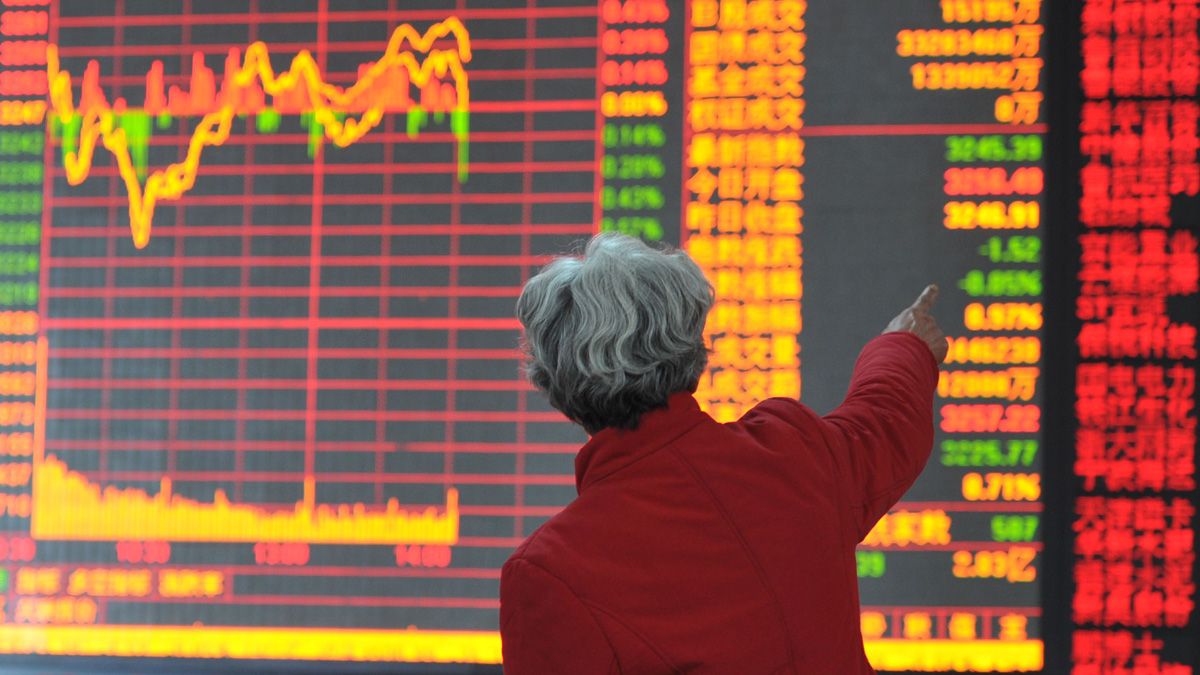Markets rebound: 'dead-cat bounce' or the real deal?
Pledges of monetary stimulus from central banks and receding chances of rate hike buoy investors

A free daily email with the biggest news stories of the day – and the best features from TheWeek.com
You are now subscribed
Your newsletter sign-up was successful
China 'bubble': Shares soar on latest government action
30 June
Chinese shares closed strongly up overnight, breaking a losing streak which had left the benchmark index in 'bear market' territory.
Having fallen by more than 5 per cent in early trading in an ongoing sell-off prompted by regulators pulling leverage out of the market, the Shanghai Composite ended around 5.5 per cent higher after its sharpest swing since 1992, according to China Daily.
The Week
Escape your echo chamber. Get the facts behind the news, plus analysis from multiple perspectives.

Sign up for The Week's Free Newsletters
From our morning news briefing to a weekly Good News Newsletter, get the best of The Week delivered directly to your inbox.
From our morning news briefing to a weekly Good News Newsletter, get the best of The Week delivered directly to your inbox.
The index had set a previous 23-year volatility high only yesterday, when early gains on the back of a but in interest rates were reversed by the close.
Yesterday the market had lost 20 per cent of its peak value, putting the market firmly in 'correction' territory. The latest rise leaves shares 17 per cent off their peak, but the index is still up 14 per cent for the second quarter and has doubled in the past year, the Wall Street Journal says.
The Financial Times reports that the overnight turnaround followed another intervention, this time from the government's finance and social security ministries, which published draft rules relaxing a restriction on state pension funds buying shares. The paper states the move would allow up to Rmb600bn (£60bn) to enter the market.
China Daily quotes a report from China Fund News, a financial newspaper owned by official government outlet People's Daily, that the country's largest four blue-chip funds saw net inflows of Rmb10bn (£1bn) on Monday. It speculated that Central Huijin Investment Ltd, the entity behind the country's major state-owned financial enterprises, could have been a key source of funds.
A free daily email with the biggest news stories of the day – and the best features from TheWeek.com
Across the rest of Asia shares ended marginally up as investors awaited further news on the ongoing Greek crisis, BBC News Online reports. In Japan, the Nikkei 225 share index closed up 0.63 per cent, while in South Korea the benchmark Kospi closed up 0.7 per cent.
Chinese shares in correction mode despite rates move
29 June
Stock markets in China have continued to retreat from all-time highs in recent weeks, as volatility has intensified despite a substantial intervention from the country's central bank following claims that a share 'bubble' has burst.
Having lost upwards of 7 per cent on Friday in the second worst trading day of the year, the benchmark Shanghai index closed down 3.3 per cent overnight after what the China Daily called its most volatile session since 1992. The index has now shed 22 per cent since 12 June, taking it past the 20 per cent threshold that indicates it is in 'correction' mode.
But in a sign of how far it had inflated, the index still remains double the level it was one year ago.
The sell-off continued in the wake of moves by the People's Bank of China (PBOC) to withdraw billions from the banking system that was being lent to investors to buy stocks. The move by the central bank has been held partly responsible for the surge over the past year, the Wall Street Journal says.
Continued off-loading by investors sitting on large losses more than offset the positive moves in early trading following the PBOC's decision on Saturday to cut the base interest rate to 4.85 per cent. To encourage lending, The PBOC also acted to reduce the amount of reserves banks are required to hold. The New York Times says the actions were interpreted as a sign the government is reluctant to see markets lose recent gains.
Slides were recorded across Asia Pacific markets last night as a result of the ongoing crisis in Greece. The country's debt wrangling entered a new phase at the weekend after bailout talks broke down and capital controls were introduced ahead of a referendum which many see as a vote on the country's membership of the euro.
In Hong Kong, the Hang Seng fell 2.7 percent; the Tokyo benchmark Nikkei 225 stock average fell 2.9 per cent; and the Australian market barometer S&P/ASX 200 fell 2.2 per cent in Sydney.
-
 Book reviews: ‘Bonfire of the Murdochs’ and ‘The Typewriter and the Guillotine’
Book reviews: ‘Bonfire of the Murdochs’ and ‘The Typewriter and the Guillotine’Feature New insights into the Murdoch family’s turmoil and a renowned journalist’s time in pre-World War II Paris
-
 Witkoff and Kushner tackle Ukraine, Iran in Geneva
Witkoff and Kushner tackle Ukraine, Iran in GenevaSpeed Read Steve Witkoff and Jared Kushner held negotiations aimed at securing a nuclear deal with Iran and an end to Russia’s war in Ukraine
-
 What to expect financially before getting a pet
What to expect financially before getting a petthe explainer Be responsible for both your furry friend and your wallet